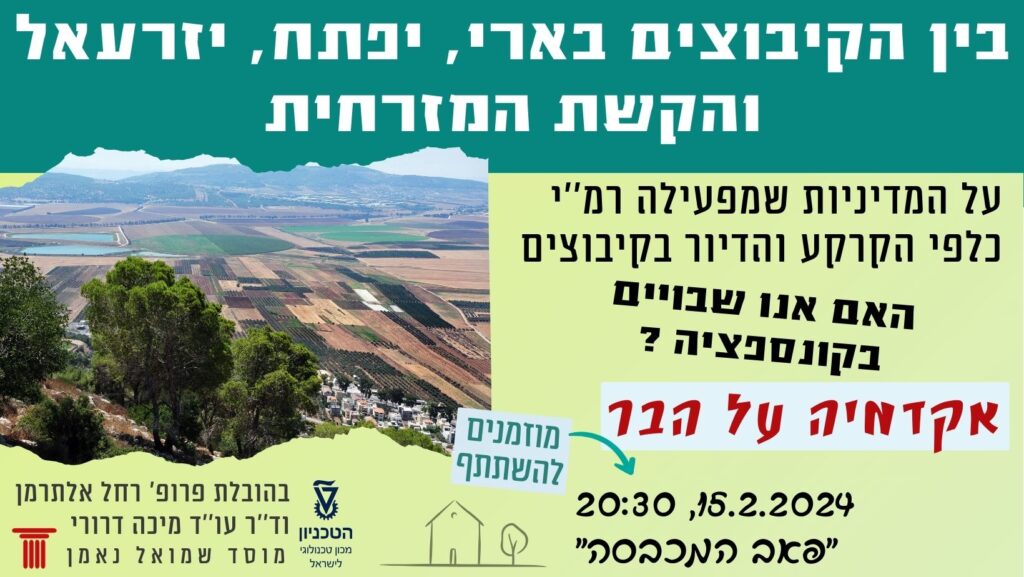We present the main results and conclusions of a public opinion survey concerning the attitudes of the Israeli public towards various aspects of science and technology (S&T) in Israeli society. The survey was done in January and is based on telephone interviews with a random sample of about 490 adults (18+) representing the entire Israeli population.
Main Results:
- There is nearly a total consensus (96%) about the importance of maintaining a high level of S&T in Israel. This consensus is related to the common belief that the advancement of S&T is vital for Israel’s economic development (94%), needs of security (90%) and quality of life (90%).
- The public is prouder in the achievements of Israel’s S&T compared to other domains, as indicated by the following “pride scores”: S&T – 83; The Security Forces and Universities – 74; Literature and Arts – 57; Democracy – 53; Sports – 46; Economy – 41; Welfare Policy -29.
- The superiority of S&T is also reflected in the occupations that people wish for their children, as shown by the following ratings: Engineer and Physician – 78; Scientist – 77; Businessman – 72; Senior Manager – 65; Lawyer – 62; Senior Officer in the IDF – 54; Journalist and Artist – 43; Writer or Poet – 40; Farmer – 37; Rabi – 31; Knesset Member – 27.
- The level of the public’s trust in the universities (71) – the main center of scientific learning and research – is second only to its trust in the IDF (73) and higher than the trust given to other social institutions, including the Supreme Court (66), The Rabbinate (47), Communication (42), the Knesset (32) and the Political Parties (25).
- Correspondingly, there is a wide consensus (88%) about the need to expand the academic educational system so that the more and more youth will be able to attend it. By comparison, only 37% have the same attitude towards the institutions of religious learning.
- A clear majority of 68% vs. 28% rejects the argument that modern science is more harmful than beneficial for society. Nevertheless, 55% accept the view that there is too much reliance on science and not enough dependence on feelings and beliefs. Similarly, the public’s conception of nature tends to be more transcendental (62%) than rational (33%). In the same spirit, a minority of only 28% accepts the scientific theory of the evolution, while the majority (59%) believes that man was created by god.
- Super-natural beliefs of religious nature mostly are quite common. Thus 44% believe in the coming of the Messiah, 48% in the existence of Hell and Heaven, and 52% in “evil eye”.
Main Conclusions:
- The domain of Science and Technology and its contribution to society is widely recognized and highly valued by the Israeli public. In fact, S&T and its related institutions is more trusted and esteemed than most other social institution in Israel. However, these grassroots attitudes stand in sharp contrast to the prevailing approach of Israel’s political elite, which has sharply diminished the resources it allocates to this domain, particularly in the last decade.
Despite the prominence of S&T in the mind of the Israel public, it appears that there is a considerable degree of adherence to supernatural beliefs, along with ignorance about scientific knowledge, as exemplified by the common rejection of the theory of evolution. This apparent paradox reemphasizes the importance of the educational system through which scientific knowledge and values can be spread and adopted











